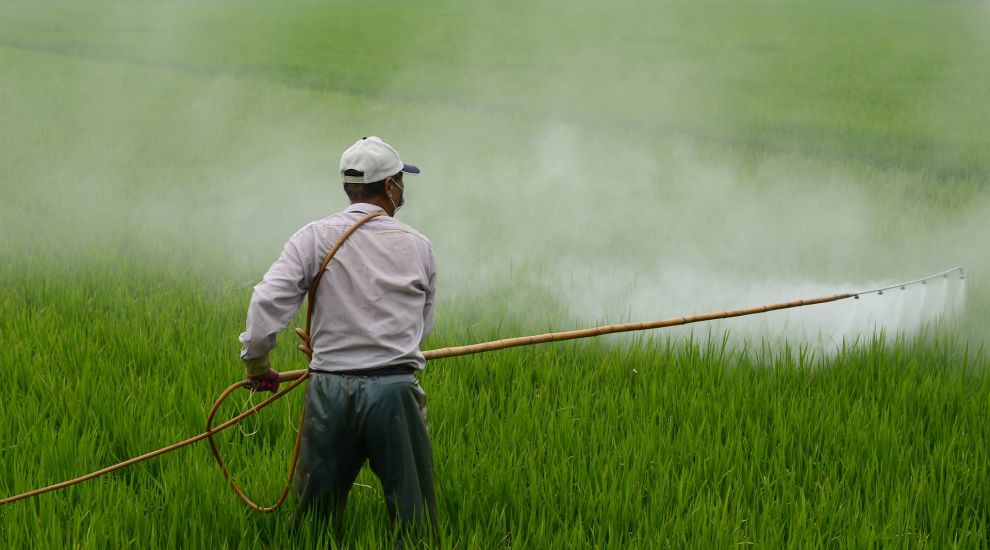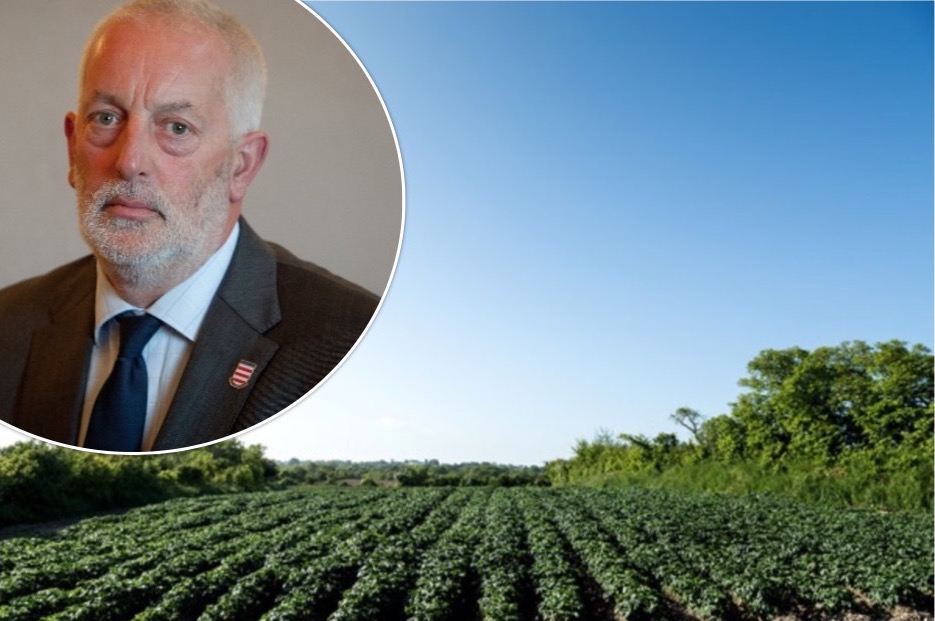

Environment officials say a weedkilling chemical, glyphosate, is “safe and effective” after members of the public raised concerns that it may cause cancer.
Glyphosate, which is found in popular pesticide Roundup, is banned in many countries around the world over fears that it may be carcinogenic following a paper published by the International Agency for Research on Cancer.
Other critics say that it has adverse effects on dogs walking in areas in which it is used, and can contribute to water pollution. Such concerns recently led France – Europe’s biggest food producer – to pledge to phase out glyphosate completely by 2022.
The news fuelled calls to ban the substance back in Jersey, with the Jersey Organic Association (JOA) launching a petition to the Minister for the Environment to bring forward legislation to ban the sale, importation and use of the products on-island.

Pictured: Glyphosate features in controversial weedkiller Roundup. (Global Justice Now)
The Environment Department issued a statement yesterday dismissing a potential ban as “unreasonable and unjustified.”
They say that newer research – as well as investigations by their own qualified plant health scientists – have shown that “glyphosate is unlikely to pose a human cancer risk and the original study was flawed.” The Minister has accepted this assessment.
“No regulatory agency in the world considers glyphosate to be a carcinogen at normal exposure limits, including ingestion in food and water, breathing via spray drift or exposure to residues on plant surfaces,” a statement signed by Plant Pathologist Stephen Thompson explained.

Pictured: Minister for the Environment Steve Luce has supported the recommendation of Environment officials not to ban the substance.
Environment officials are now assuring members of the public that the Department follows EU and UK best practice, and that scientists regularly review new research on pesticide products to ensure that those being used in Jersey “don’t pose an unacceptable risk.”
They reminded the public, however, that herbicide and pesticides should be used responsibly and with the correct protective clothing if appropriate. They advised extra caution – and avoidance where possible – of applying near water courses, wells and rains, and urged users to never wash containers in streams.
Officials also reminded people that those using such products should hold a ‘certificate of competence’ – even if using an ‘amateur’ version.
Environmental campaigner Mark Forskitt has since responded to the Department's assertion that the product is safe if used appropriately. He told Express: "Philip of Macedon after invading southern Greece and receiving the submission of other Greek City States sent a message to Sparta: 'You are advised to submit without further delay. If I bring my army into your land, I will destroy your farms, slay your people, and raze your city.' The Spartans’ reply was a single word: 'IF.'
“The Minister's statement on glyphosate deserves just such a laconic reply. At some length it argues if it is applied appropriately etc., there is no harm. Does he really think the world is perfect, there are never accidents, negligence, error or plain cheating? The statement shows that the Minister has not understood the nature of the problem."
Comments
Comments on this story express the views of the commentator only, not Bailiwick Publishing. We are unable to guarantee the accuracy of any of those comments.